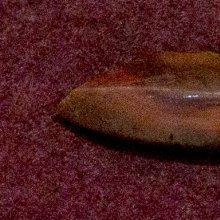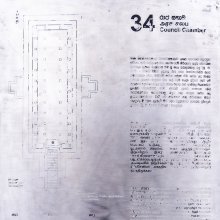Malaka, Mālāka, Māḷaka, Mālākā, Mālaka, Malākā: 19 definitions
Introduction:
Malaka means something in Buddhism, Pali, Hinduism, Sanskrit, Marathi, biology. If you want to know the exact meaning, history, etymology or English translation of this term then check out the descriptions on this page. Add your comment or reference to a book if you want to contribute to this summary article.
The Sanskrit term Māḷaka can be transliterated into English as Malaka or Maliaka, using the IAST transliteration scheme (?).
Images (photo gallery)
In Hinduism
Purana and Itihasa (epic history)
Source: Cologne Digital Sanskrit Dictionaries: The Purana Index1a) Malaka (मलक).—Was the Asura who entered heaven, snatched away the nectar vessel from Dhanvantari: Mohinī helped the gods in the scuffle that ensued and Malaka fled to Pātālam.*
- * Brahmāṇḍa-purāṇa IV. 9. 38. 10. 2, 23.
1b) A commander of Bhaṇḍa.*
- * Brahmāṇḍa-purāṇa IV. 21. 85.
Mālaka (मालक) is a name mentioned in the Mahābhārata (cf. VI.10.61) and represents one of the many proper names used for people and places. Note: The Mahābhārata (mentioning Mālaka) is a Sanskrit epic poem consisting of 100,000 ślokas (metrical verses) and is over 2000 years old.

The Purana (पुराण, purāṇas) refers to Sanskrit literature preserving ancient India’s vast cultural history, including historical legends, religious ceremonies, various arts and sciences. The eighteen mahapuranas total over 400,000 shlokas (metrical couplets) and date to at least several centuries BCE.
In Buddhism
Tibetan Buddhism (Vajrayana or tantric Buddhism)
Source: academia.edu: The Structure and Meanings of the Heruka MaṇḍalaMālāka (मालाक) is the name of a Vīra (hero) who, together with the Ḍākinī named Mālinī forms one of the 36 pairs situated in the Guṇacakra, according to the 10th century Ḍākārṇava chapter 15. Accordingly, the guṇacakra refers to one of the four divisions of the sahaja-puṭa (‘innate layer’), situated within the padma (lotus) in the middle of the Herukamaṇḍala. The 36 pairs of Ḍākinīs and Vīras [viz., Mālāka] are whitish red in color; they each have one face and four arms; they hold a skull bowl, a skull staff, a small drum, and a knife.

Tibetan Buddhism includes schools such as Nyingma, Kadampa, Kagyu and Gelug. Their primary canon of literature is divided in two broad categories: The Kangyur, which consists of Buddha’s words, and the Tengyur, which includes commentaries from various sources. Esotericism and tantra techniques (vajrayāna) are collected indepently.
Biology (plants and animals)
Source: Google Books: CRC World Dictionary (Regional names)Malaka in India is the name of a plant defined with Azadirachta indica in various botanical sources. This page contains potential references in Ayurveda, modern medicine, and other folk traditions or local practices It has the synonym Melia indica (A. Juss.) Brandis (among others).
Example references for further research on medicinal uses or toxicity (see latin names for full list):
· International Journal of Dermatology (2007)
· Blumea (1948)
· Journal of Economic and Taxonomic Botany (2003)
· Mém. Mus. Hist. Nat. (1830)
· Journal of Ethnopharmacology (2005)
· Journal of Ethnopharmacology (2002)
If you are looking for specific details regarding Malaka, for example health benefits, diet and recipes, side effects, extract dosage, pregnancy safety, chemical composition, have a look at these references.

This sections includes definitions from the five kingdoms of living things: Animals, Plants, Fungi, Protists and Monera. It will include both the official binomial nomenclature (scientific names usually in Latin) as well as regional spellings and variants.
Languages of India and abroad
Pali-English dictionary
Source: BuddhaSasana: Concise Pali-English Dictionarymālaka : (m.) a circular enclosure; a round yard.
Source: Sutta: The Pali Text Society's Pali-English DictionaryMāḷaka, (a Non-Aryan word, although the Dhtm 395 gives roots mal & mall in meaning “dhāraṇa” (see under mala). Cp. malorika) a stand, viz. for alms-bowl (patta°) Vin. II, 114, or for drinking vessel (pānīya°) J. VI, 85. (Page 531)
— or —
Mālaka, (Māḷaka) (fr. māla or māḷa) a circular (consecrated) enclosure, round, yard (cp. Geiger, Mhvs. trsl. 99: “m. is a space marked off and usually terraced, within which sacred functions were carried out. In the Mahāvihāra (Tiss’ārāma) at Anurādhapura there were 32 mālakas; Dpvs XIV. 78; Mhvs 15, 192. The sacred Bodhi-tree e.g. was surrounded by a malaka”).—The word is peculiar to the late (Jātaka-) literature, & is not found in the older texts.—J. I, 449 (vikkama°); IV, 306; V, 49 (visāla°), 138 (id. , spelling maḷaka); Mhvs 15, 36 (Mahā-mucala°); 16, 15; 32, 58 (saṅghassa kamma°, encl. for ceremonial acts of the S. , cp. 15, 29); DhA. IV, 115 (°sīmā); Vism. 342 (vitakka°). (Page 530)

Pali is the language of the Tipiṭaka, which is the sacred canon of Theravāda Buddhism and contains much of the Buddha’s speech. Closeley related to Sanskrit, both languages are used interchangeably between religions.
Marathi-English dictionary
Source: DDSA: The Molesworth Marathi and English Dictionarymaḷakā (मळका).—a (maḷa) Dirty, foul, filthy.
--- OR ---
mālaka (मालक).—c ( A) An owner or a proprietor: also a lord, ruler, master. 2 The rightful or proper person; the person of whom it is the province or peculiar business or right. Ex. mājhā bāpa jāmīna rāhilā āhē tō tyā gōṣṭīcā mā0 tyāsa kāya tēṃ vicārā.
--- OR ---
māḷakā (माळका).—f (māḷa) A string, line, train (of things or of living creatures). v lāva, lāga.
Source: DDSA: The Aryabhusan school dictionary, Marathi-Englishmālaka (मालक).—c An owner. The rightful person.
--- OR ---
māḷakā (माळका).—f A string, line, train (of things, &c.).
Marathi is an Indo-European language having over 70 million native speakers people in (predominantly) Maharashtra India. Marathi, like many other Indo-Aryan languages, evolved from early forms of Prakrit, which itself is a subset of Sanskrit, one of the most ancient languages of the world.
Sanskrit dictionary
Source: DDSA: The practical Sanskrit-English dictionaryMalākā (मलाका).—
1) An amorous or lustful woman.
2) A female messenger, confidante.
3) A female elephant.
--- OR ---
Mālaka (मालक).—
1) The Nimba tree.
2) A wood near a village.
3) A pot made of a cocoa-nut shell.
4) An arbour, bower.
-kā, -kam 1 A garland.
2) The land-growing lotus; L. D. B.
Derivable forms: mālakaḥ (मालकः).
--- OR ---
Mālākā (मालाका).—f. A garland; L. D. B.
Source: Cologne Digital Sanskrit Dictionaries: Edgerton Buddhist Hybrid Sanskrit DictionaryMālaka (मालक).—name of a hunter in the Kiṃnarī Jātaka (story of Manoharā); compare Halaka: Mahāvastu ii.102.1; 104.8; 105.18; 114.8, 10.
Source: Cologne Digital Sanskrit Dictionaries: Shabda-Sagara Sanskrit-English DictionaryMalākā (मलाका).—f.
(-kā) 1. A female messenger. 2. A lewd woman. 3. A female elephant. E. mala, āka aff.
--- OR ---
Mālaka (मालक).—m.
(-kaḥ) 1. The Nimba tree, (Melia azadiracta.) 2. A vessel made of cocoanut-shell. n.
(-kaṃ) A flower, (Hibiscus mutabilis.) f.
(-kā) A garland. E. mālā a garland, kan aff. and the final of the fem. rejected; also in the fem. form, mālākā and mālikā q. v.
--- OR ---
Mālākā (मालाका).—f.
(-kā) A garland, a wreath. E. mālā the same, kan pleonasm.
Source: Cologne Digital Sanskrit Dictionaries: Benfey Sanskrit-English DictionaryMalākā (मलाका).—i. e. mala + āka, f. 1. A lewd woman. 2. A female messenger. 3. A female elephant.
--- OR ---
Mālaka (मालक).—[-māla + ka], at the end of comp. adj., f. likā; e. g. akṣara-, Consisting of a line of letters, [Pañcatantra] ii. [distich] 183. baddha-vandana-, adj. Having fastened garlands of salutation, [Pañcatantra] 207, 24 (but cf. vandana-mālā, s. v. māla).
Source: Cologne Digital Sanskrit Dictionaries: Cappeller Sanskrit-English DictionaryMālaka (मालक).—[masculine] arbour, bower; [feminine] likā garland, necklace; row, line, multitude; [neuter] garland, ring.
Source: Cologne Digital Sanskrit Dictionaries: Monier-Williams Sanskrit-English Dictionary1) Malaka (मलक):—[from mala] m. [plural] Name of a people, [Mārkaṇḍeya-purāṇa]
2) Malākā (मलाका):—f. (only [cf. Lexicographers, esp. such as amarasiṃha, halāyudha, hemacandra, etc.]) a female messenger, confidante
3) an amorous woman
4) a female elephant.
5) Mālaka (मालक):—[from māla] m. ([probably]) an arbour, bower, [Siṃhāsana-dvātriṃśikā or vikramāditya-caritra, jaina recension]
6) [v.s. ...] Melia Sempervirens, [cf. Lexicographers, esp. such as amarasiṃha, halāyudha, hemacandra, etc.]
7) [v.s. ...] a wood near a village, [cf. Lexicographers, esp. such as amarasiṃha, halāyudha, hemacandra, etc.]
8) [v.s. ...] [plural] Name of a people, [Viṣṇu-purāṇa]
9) Mālakā (मालका):—[from mālaka > māla] f. a garland, [cf. Lexicographers, esp. such as amarasiṃha, halāyudha, hemacandra, etc.]
10) Mālaka (मालक):—[from māla] n. a garland, ring, [Suśruta]
11) [v.s. ...] Hibiscus Mutabilis, [cf. Lexicographers, esp. such as amarasiṃha, halāyudha, hemacandra, etc.]
12) Mālākā (मालाका):—[from māla] f. = mālikā (See under mālaka), [cf. Lexicographers, esp. such as amarasiṃha, halāyudha, hemacandra, etc.]
Source: Cologne Digital Sanskrit Dictionaries: Yates Sanskrit-English Dictionary1) Malākā (मलाका):—(kā) 1. f. A messenger; a bad woman; an elephant.
2) Mālaka (मालक):—(kaḥ) 1. m. The Nimb tree. f. A garland. n. Hibiscus.
3) Mālākā (मालाका):—(kā) 1. f. A garland.
Source: DDSA: Paia-sadda-mahannavo; a comprehensive Prakrit Hindi dictionary (S)Malaka (मलक) in the Sanskrit language is related to the Prakrit word: Malaya.
[Sanskrit to German]
Sanskrit, also spelled संस्कृतम् (saṃskṛtam), is an ancient language of India commonly seen as the grandmother of the Indo-European language family (even English!). Closely allied with Prakrit and Pali, Sanskrit is more exhaustive in both grammar and terms and has the most extensive collection of literature in the world, greatly surpassing its sister-languages Greek and Latin.
Kannada-English dictionary
Source: Alar: Kannada-English corpusMālaka (ಮಾಲಕ):—
1) [noun] = ಮಾಲ - [mala -] 3.
2) [noun] the tree Azadirachta indica of Meliaceae family, valued for its medicinal qualities; neem tree.
3) [noun] the plant Hibiscus mutabilis of Malvaceae family.
4) [noun] a string of flowers or beads.
--- OR ---
Mālaka (ಮಾಲಕ):—[noun] = ಮಾಲಿಕ [malika]2.
Kannada is a Dravidian language (as opposed to the Indo-European language family) mainly spoken in the southwestern region of India.
See also (Relevant definitions)
Starts with (+20): Mala-kattucanni, Malaka-jamrul, Malakaduhatti, Malakai, Malakakao, Malakali, Malakalli, Malakalumpit, Malakam, Malakambari, Malakamias, Malakamma, Malakamote, Malakamsa, Malakanda, Malakangoni, Malakanguni, Malakani, Malakanniram, Malakanta.
Ends with (+50): Amalaka, Anamalaka, Andhalyanci Malaka, Angulimala, Asokamalaka, Badaramalaka, Bahumalaka, Bhugolahastamalaka, Cukalamalaka, Gandamalaka, Girimalaka, Hastamalaka, Hastatalamalaka, Hemamalaka, Jyeshthamalaka, Kalamalaka, Kalimalaka, Kamalaka, Karamalaka, Karatalamalaka.
Full-text (+38): Malaya, Malakam, Malika, Malaki, Kritamalaka, Malaja, Tumbara, Malakatanem, Langkuas malaka, Malakata, Kalimalaka, Sumalaka, Malada, Kalamalaka, Kalimaraka, Badaramalaka, Paniyamalaka, Pracinamalaka, Yakshamalaka, Salamalaka.
Relevant text
Search found 12 books and stories containing Malaka, Maḷakā, Mālāka, Māḷaka, Mālākā, Mālaka, Malākā, Malakā, Māḷakā, Mālakā; (plurals include: Malakas, Maḷakās, Mālākas, Māḷakas, Mālākās, Mālakas, Malākās, Malakās, Māḷakās, Mālakās). You can also click to the full overview containing English textual excerpts. Below are direct links for the most relevant articles:
Mahavamsa (by Wilhelm Geiger)
Chapter 16 - The Acceptance Of The Cetiyapabbata Vihara
Chapter 15 - The Acceptance Of The Mahavihara
List of Mahabharata tribes (by Laxman Burdak)
List of Mahabharata people and places (by Laxman Burdak)
Dipavamsa (study) (by Sibani Barman)
Lalitopakhyana (Lalita Mahatmya) (by G.V. Tagare)
Chapter 10 - Manifestation of Mohinī
Chapter 21 - Boasting of Bhaṇḍāsura
The Mahavastu (great story) (by J. J. Jones)
Chapter XIII - The Kinnarī Jātaka < [Volume II]

